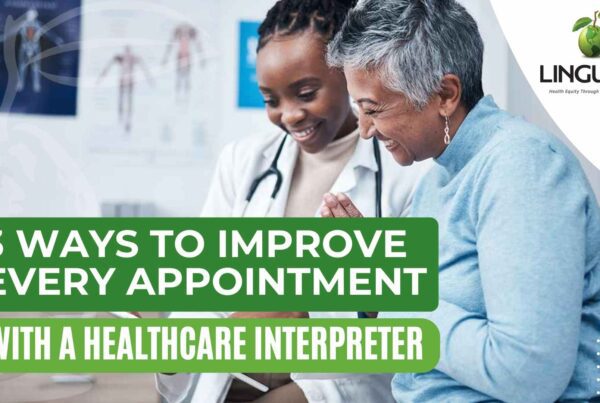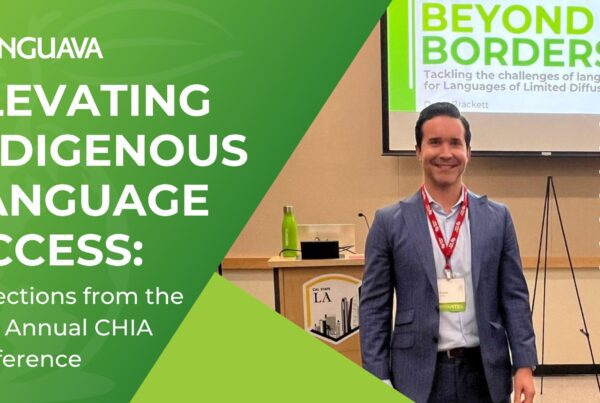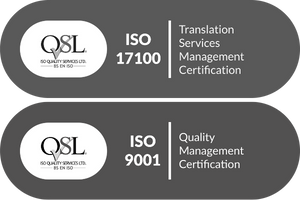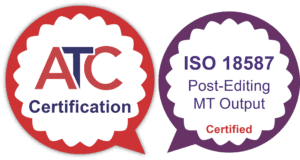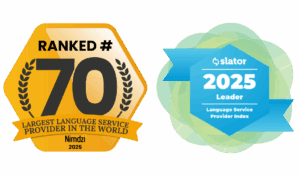Before diving into the requirements and process, we invited two experts from our team to share their perspectives. In this short video, Valeria—a Certified Medical Interpreter and Linguava Interpreter Academy instructor—and Daniel, our Director of Training and Client Success, talk about what it really means to become a credentialed healthcare interpreter in Oregon.
Why Healthcare Interpreting Matters in Oregon
In healthcare, clear communication isn’t a luxury, it’s essential. For the more than 260,000 Oregonians who have limited proficiency in English, accurate interpretation can make the difference between getting the right diagnosis or not being understood at all.
That’s why Oregon law mandates that publicly funded healthcare providers work with interpreters credentialed by the Oregon Health Authority (OHA). The goal is simple: protect patients, support providers, and ensure language access isn’t a barrier to care.

What Oregon Requires for Interpreters: Two Credential Types
To interpret in a medical setting using public funds, interpreters must be registered as either a Qualified or Certified Health Care Interpreter with the OHA.
Qualified Health Care Interpreter
-
- Be 18 or older
- Education: Must have a high school diploma (or GED equivalent) or higher.
- Submit valid ID and pass a Medicaid exclusion check
- Demonstrate language proficiency in English and another language from an OHA-approved Language Testing Provider
- Complete a 60-hour healthcare interpreter training from an OHA-approved HCI Training Program
Certified Health Care Interpreter
-
- Meets all the above, plus:
- Proof of passing a certification test from one of the following: CCHI, NBCMI, or approved court exams
Note: Sign language interpreters have additional requirements, including RID certification and licensure through OHA’s Health Licensing Office (as of 2024).

What Providers Need to Know
If your clinic, hospital, or health plan receives public funding, you’re expected to work with credentialed interpreters. While immediate availability isn’t always possible, providers must show a “good faith effort” to hire those listed in the OHA registry.
Why this matters:
-
- Mitigates legal risk
- Strengthens patient safety
- Improves clinical accuracy and trust
When providers work with credentialed interpreters, they’re not just checking a compliance box – they’re investing in safer, more effective care. Credentialed interpreters bring the training, ethical grounding, and communication skills needed to navigate complex clinical interactions. It allows providers to focus on providing care, knowing the message is getting through clearly and accurately.
Daniel, Director of Training and Client Success
Why Credentialing Matters to Interpreters
For interpreters, credentialing serves as a formal acknowledgment of their readiness and professionalism. Obtaining your credentials signals to providers that you’re trained, tested, and ready for clinical settings where accuracy and confidentiality are essential.
With an OHA credential, interpreters are more likely to:
-
- Be hired or contracted more consistently
- Negotiate rates effectively
- Be included in Oregon’s official interpreter registry
Getting credentialed as a medical interpreter matters for many reasons, but a few stand out to me personally. First, it gives you confidence, knowing you’ve been trained and tested to act professionally in critical situations. Second, it motivates you to keep learning and growing, both in your understanding of the profession and in your mastery of medical terminology. And third, it connects you with a community of other interpreters who are just as passionate and dedicated to the field as you are.
Valeria, Interpreter Trainer and LIA Instructor
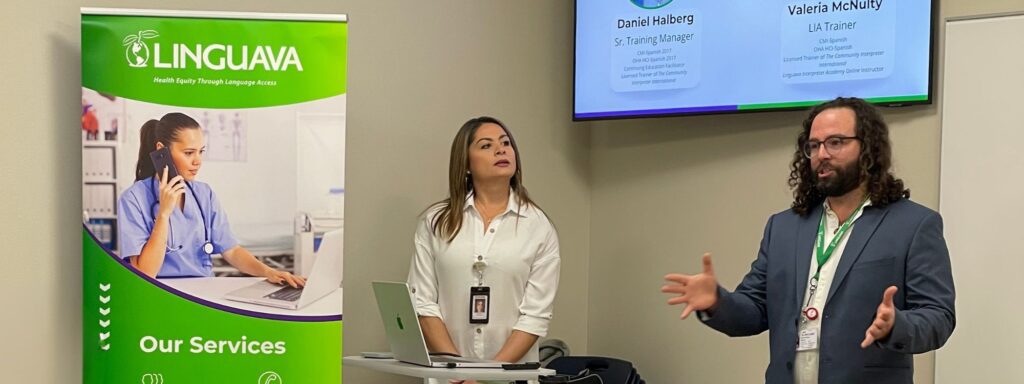
A New Interpreter’s Perspective
What some past interpreter education participants have said:
“It was a pleasure to participate in a course through LIA. The instructor was outstanding, professional, engaging, and clear in their explanations, creating an inclusive environment where all students felt heard and respected, regardless of their experience level. The course material was thoughtfully organized, relevant, and directly applicable to our work as interpreters. I truly enjoyed the class and would gladly take more courses with LIA in the future, especially with this instructor!”
“Thank you to LIA for the guidance and support throughout this journey. Reaching this milestone is a significant accomplishment, and it wouldn’t have been possible without the dedication and encouragement of the team. I’m truly grateful for the time, effort, and expertise invested in helping students succeed. The continued support and motivation offered by LIA make a lasting impact—thank you for being such an important part of this achievement”
How to Get Started with Interpreter Credentialing
If you’re considering becoming a healthcare interpreter in Oregon, here’s what the process typically looks like:
-
- Demonstrate language proficiency through an approved testing center
- Complete a 60-hour healthcare interpreter training through an approved training program
- Apply through the OHA Health Care Interpreter Program’s Portal
Training scholarships and approved courses are available through organizations like Linguava and OHCIA.
What Provider Teams Can Do Now
-
- Audit current interpreter rosters for OHA credentials
- Train frontline staff on Oregon’s interpreter requirements
- Update documentation practices to show “good faith effort”
- Work with agencies that prioritize credentialed interpreters
Elevating Standards Through Credentialing
Credentialing is a tangible step toward building safer, more equitable, and effective care environments. For interpreters, it reflects the skill and responsibility they carry into every clinical conversation. For providers, it’s a legal and ethical imperative.
At Linguava, we’re committed to supporting interpreters and healthcare organizations in this process through the Linguava Interpreter Academy. Our training programs help interpreters gain the skills, credentials, and confidence they need to thrive-and help providers access professionals they can trust. Whether you’re an interpreter looking to grow or a provider seeking qualified partners, we’re here to help elevate the standard for language access in Oregon.
Have questions? Connect with us to learn more. For interpreters, it reflects the skill and responsibility they carry into every clinical conversation. For providers, it’s a legal and ethical imperative.
To find more information or to begin the process of becoming credentialed in Oregon, visit the OHA Health Care Interpreter Program.
Sources


